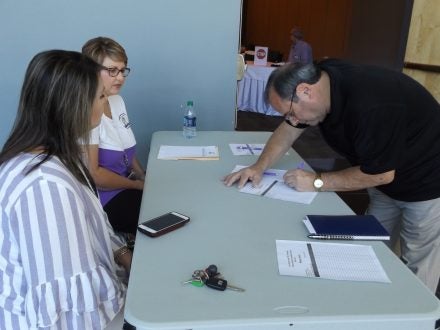How to become a ‘Rotary Reader’
Published 4:38 pm Tuesday, October 30, 2018
On Tuesday, Decatur County Board of Education leaders presented a training session to help Rotarians learn the Do’s and Don’ts of becoming a volunteer reader in the elementary schools.
It is not nearly as easy as wanting to do it, signing up, then showing up.
Chip Davis, director of the federal program, and Dr. Cheryl Guy, district parent and family engagement coordinator reviewed the packet of information each volunteer was given.
First and foremost, each volunteer must pass a criminal history record inquiry.
Then, they must complete a Rotary community reader volunteer needs assessment.
Applicants indicate their desire to be a reader, and designate what school for which they prefer to volunteer. Upon approval, each reader will be issued a name badge they are required to wear while in the building.
The needs assessment is used for all those having any in-school interaction with any student under the age of 18, as required by the Decatur County Board of Education.
A lengthy list of Do’s and Don’ts include such expectations as schedule a time to come and help, and if you sign up, show up. You must maintain confidentiality for all students and information you may be privy to while in the classroom or on a field trip.
You must turn off your cell phone and comply with school system policies, including the dress code.
Don’ts include never be alone with a child in the classroom or other location; do not try to be the disciplinarian in any situation; and do not talk about students and their academics or behavior to anyone other than the supervising teacher or staff member.
A critical issue explained by Davis is that of the Mandated Reporter that requires anyone who suspects there is neglect or abuse of a child to report it to a teacher or guidance counselor within 24 hours of noticing it. Failure to report is a misdemeanor, and if convicted carries a fine and possible jail time. Do not ask the child questions, but if a child shares something of that nature with you, take them to a teacher or guidance counselor. He states that there is no harm in being wrong, as long as reporters make the report in good faith.
A list of 100 books every child should hear before Kindergarten is also included in the packet, as is information regarding “On the Road” partnership between family, schools and the Community Engagement Bus. The bus is taken into the community to provide parents and families information, training and resources needed to work with their children to improve their academic achievements.
Books for the program are being donated by the Bainbridge Rotary Club through a reading grant they received.






